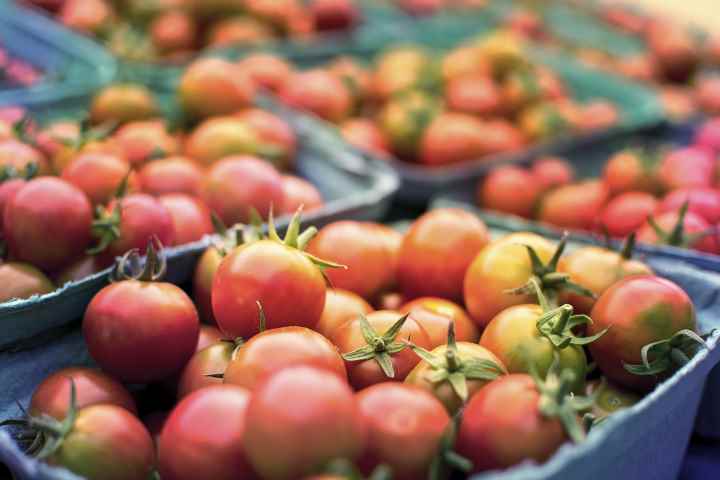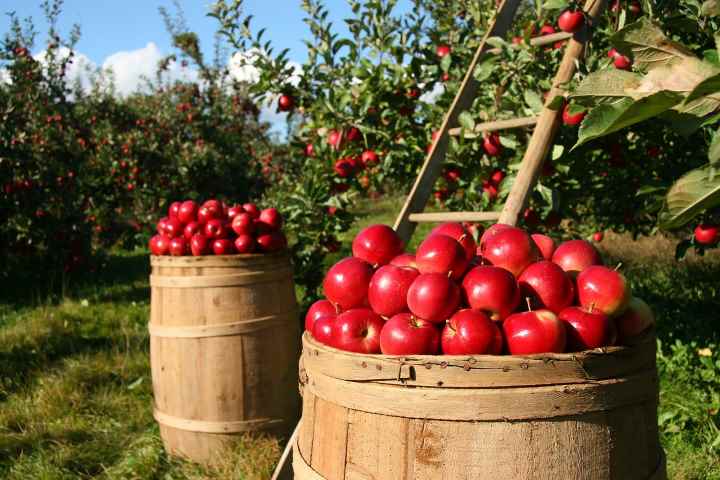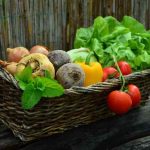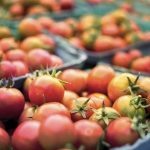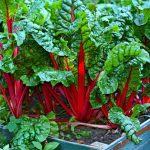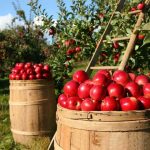
The Beginner’s Guide to Organic Gardening: Embracing Nature’s Way Leave a comment
The Beginner's Guide to Organic Gardening: Embracing Nature’s Way
Discover the joys of organic gardening with our beginner's guide.
Learn about composting, mulching, natural fertilizers, and the philosophy behind growing your garden in harmony with nature.
Organic gardening is more than just a trend; it’s a sustainable approach to cultivating your garden, enabling you to grow fruits, vegetables, and herbs in harmony with nature. Unlike traditional gardening, organic gardening shuns synthetic chemicals, opting instead for natural methods to enrich the soil and combat pests. This beginner’s guide will introduce you to the essentials of organic gardening, from understanding its principles to implementing basic practices that nurture your garden naturally.
Understanding Organic Gardening
At its core, organic gardening means nurturing your garden without relying on synthetic fertilizers, pesticides, or fungicides. It’s about leveraging natural processes and materials—like compost, beneficial microbes, and organic matter—to create a self-sustaining ecosystem. Organic gardening isn’t just about producing food; it’s about maintaining a balanced, eco-friendly garden that supports the health of the soil and the environment.
Key Terms in Organic Gardening
Compost: The heart of any organic garden, compost is made from decomposing organic matter, such as kitchen scraps and yard waste. It enriches the soil by adding nutrients and improving soil structure.
Mulch: A protective layer spread on top of the soil, mulch conserves moisture, suppresses weeds, and can even enhance the garden’s aesthetic appeal.
Blood Meal: A high-nitrogen animal byproduct, blood meal accelerates compost decomposition and enriches the soil, promoting rapid plant growth.
Bone Meal: Made from ground animal bones, bone meal is an excellent source of phosphorus, vital for root development, flowering, and fruiting.
Getting Started with Organic Gardening
Composting: Turning Waste into Gold
Composting is a simple way to recycle kitchen and garden waste into rich soil amendments. By setting up a compost bin, you can create a nutrient-rich humus that boosts your garden’s fertility and structure.
Product Recommendation: The dual chamber Tumbling composting Bin offers a convenient and efficient way to compost kitchen scraps and yard waste, even in limited spaces.
Mulching: The Protector of Your Garden
Mulch is indispensable in an organic garden. It retains soil moisture, keeps weeds at bay, and adds organic matter to the soil as it decomposes. Using organic mulches like straw, wood chips, or leaf litter can also enhance the garden’s natural look.
Product Recommendation: EZ-Straw Seeding Mulch is an organic, easy-to-apply mulch that not only looks great but is also effective in retaining soil moisture and preventing erosion.
Fertilizing Naturally
To avoid synthetic fertilizers, organic gardeners use natural fertilizers like blood meal and bone meal. These products add essential nutrients like nitrogen and phosphorus to the soil, promoting healthy plant growth.
Product Recommendation: Miracle Go Blood Meal Fertilizer is an excellent organic source of nitrogen, perfect for nitrogen-hungry plants and accelerating compost decomposition.
Product Recommendation: Miracle Bone Meal Fertilizer provides a natural, slow-release source of phosphorus, vital for root development and blooming.
Embracing the Organic Philosophy
Organic gardening is more than just a set of practices; it’s a philosophy that emphasizes working with nature rather than against it. It encourages biodiversity, soil health, and ecological balance, creating a garden that’s both productive and sustainable.
Additional Resources
For those looking to dive deeper into organic gardening, numerous resources are available to help you expand your knowledge and skills:
Books: The Organic Gardener’s Handbook offers a comprehensive guide to understanding and implementing organic gardening practices.
Organic gardening requires patience, observation, and a willingness to learn from nature. By embracing organic practices, you not only produce healthy, chemical-free food but also contribute to a healthier planet. Start small, experiment, and watch as your garden becomes a vibrant ecosystem teeming with life.
-
FALL Sale & Deals, GARDEN EQUIPMENT, Garden wear
6 Pairs Garden Gloves for Women, Nitrile Coated Working Gloves, for Gardening, Restoration Work, Pink & Green, M
-8% FALL Sale & Deals, GARDEN EQUIPMENT, Garden wear
FALL Sale & Deals, GARDEN EQUIPMENT, Garden wear6 Pairs Garden Gloves for Women, Nitrile Coated Working Gloves, for Gardening, Restoration Work, Pink & Green, M
0 out of 5(0)Designed for Women: This HAUSHOF 6 pairs garden gloves are made exclusively for women or smaller hands. Wearing these working gloves to look after your hands, which making handling tiny seeds, delicate seedling and other light tasks much more easy. The simple design will make palms open and close easily, effortless to reach tools and planting.
Nitrile Coated: The nitrile coating on the palm staves off the bite and sting of insects commonly found in and around vegetation.
Wrist Closure for Protect: Elastic closures keep more of a snug fit of the glove. The wrist closure of HAUSHOF garden gloves prevent loose materials from falling into glove opening when you are digging or weeding. Knitted base that has an extended fitted cuff for added protection, and also keeps moisture from both plants and soil from soaking into the material.SKU: n/a$21.99$23.99 -
Composting, FALL Sale & Deals, GARDEN ACCESSORIES
Garnen 72 Gallon Garden Waste Bags (2 Pack), Heavy Duty Reusable/Collapsible Leaf Basket Bags with 4 Reinforced Handles for Lawn Yard Pool Plant Trash Trimming Gardening Containers
-14% Composting, FALL Sale & Deals, GARDEN ACCESSORIES
Composting, FALL Sale & Deals, GARDEN ACCESSORIESGarnen 72 Gallon Garden Waste Bags (2 Pack), Heavy Duty Reusable/Collapsible Leaf Basket Bags with 4 Reinforced Handles for Lawn Yard Pool Plant Trash Trimming Gardening Containers
0 out of 5(0)[72 GALLON WASTE BAGS] Garnen’s yard waste bags are one of the best gardening tools for anyone with a green thumb. Their 72 gallon capacity is large and suitable for both compact and bulky yard waste, like branches, vines, weeds, grass-clippings, etc. They hold more waste than other bags, so you don’t need to take as many trips to empty them.
[ERGONOMIC DESIGN] The outdoor collapsible bags keep ergonomics and convenience in mind. The bags are able to stay upright and open without additional support. Two handles at the top and two at the bottom make the bags easy to carry and empty.
[DURABLE BAGS WITH REINFORCED HANDLES] The polypropylene woven trash bags are lightweight, durable, water-repellent, tear-resistant, and eco-friendly. The nylon handles are reinforced with double stitched webbing, making them extra sturdy.SKU: n/a$24.99$28.99 -
Composting, FALL Sale & Deals, GARDEN ACCESSORIES
3Pack 72Gallons Collapsible Garden Waste Bags, Self-Standing and Reusable Leaf Bag
 Composting, FALL Sale & Deals, GARDEN ACCESSORIES
Composting, FALL Sale & Deals, GARDEN ACCESSORIES3Pack 72Gallons Collapsible Garden Waste Bags, Self-Standing and Reusable Leaf Bag
0 out of 5(0)High capacity: The capacity of each garden bag is 72 gallons (H: 76, D: 67), you will have enough space to collect leaves, green cuttings, lawn, hedge cutting, small branches, shrubs, bushes and other wastes. They are very practical containers for garden waste.
Thick and durable: The bag is made of polypropylene fabric, it’s tear-resistant and heat-resistant, not easy to deform, very thick and waterproof.
Easy to use: Each bag has 4 grab handles (2 at the top, 2 at the bottom) and a plastic strips (the bag mouth has a special holes for inserting plastic tape to fix the bag mouth) make the transportation and emptying easier.SKU: n/a$31.98 -
FALL Sale & Deals, GARDENING TOOLS, Rakes
Wolf-Garten UIMC Multi-Change Leaf Rake Lawn Care Tool Head, 46.5×6.5×4.2 cm, Red
 FALL Sale & Deals, GARDENING TOOLS, Rakes
FALL Sale & Deals, GARDENING TOOLS, RakesWolf-Garten UIMC Multi-Change Leaf Rake Lawn Care Tool Head, 46.5×6.5×4.2 cm, Red
0 out of 5(0)Part of the Multi-Change Range
Ideal for use on Hard Ground
42cm WidthSKU: n/a$67.30 -
FALL Sale & Deals, GARDENING TOOLS, Rakes
Garden Rake -Small Leaves Rakes for Gardening – 11 Metal Tines 8.5″ Wide – 78″ Long Handle Leaf Rakes for Lawns Heavy Duty for Yard Lawn Shrub Garden Beds
-7% FALL Sale & Deals, GARDENING TOOLS, Rakes
FALL Sale & Deals, GARDENING TOOLS, RakesGarden Rake -Small Leaves Rakes for Gardening – 11 Metal Tines 8.5″ Wide – 78″ Long Handle Leaf Rakes for Lawns Heavy Duty for Yard Lawn Shrub Garden Beds
0 out of 5(0)Premium stainless steel thickened pipe made, this leaf rakes is solid & durable for lifetime use
36-78” adjustable long handle for better accommodate your height and reach.
With 8.5” wide head,this garden rake is great for getting leaves between garden flower bed & shrubsSKU: n/a$32.37$34.99 -
FALL Sale & Deals, GARDENING TOOLS, Rakes
Adjustable Garden Leaf Rake 4.5ft, Collapsible Metal Yard Rake for Leaves with Expandable Head 7-16″, Collect Loose Debris for Lawns Camping Shrubs and Rose Bushes Heavy Duty
-23% FALL Sale & Deals, GARDENING TOOLS, Rakes
FALL Sale & Deals, GARDENING TOOLS, RakesAdjustable Garden Leaf Rake 4.5ft, Collapsible Metal Yard Rake for Leaves with Expandable Head 7-16″, Collect Loose Debris for Lawns Camping Shrubs and Rose Bushes Heavy Duty
0 out of 5(0)SKU: n/a$19.99$25.99 -
Feeds & fertilizers, FOR PLANTS
Mono Potassium Phosphate for Plants 0-52-34, Soluble Fertilizer for Gardening and Hydroponic Use (2 LB)
-6% Feeds & fertilizers, FOR PLANTS
Feeds & fertilizers, FOR PLANTSMono Potassium Phosphate for Plants 0-52-34, Soluble Fertilizer for Gardening and Hydroponic Use (2 LB)
0 out of 5(0)Monopotassium Phosphate fertilizer contains 52% Phosphorous and 34% Potassium and is water soluble.
Soluble Fertilizer for Fertigation and Foliar Spray
For Use in Gardens, Hydroponic, and GreenhouseSKU: n/a$33.95$35.95 -
Blowers and vacuums, GARDEN EQUIPMENT
Greenworks 24V Cordless Jet Blower, 2.0 AH Battery Included
0 out of 5(0)Finish your project with up to 11 minutes of runtime on high with a 2Ah battery
Powerful axial design provides 330 CFM at 100 MPH
Reduce fatigue with comfort over mold grip and variable speed trigger. Weighs onlySKU: n/a$74.83 -
Blowers and vacuums, GARDEN EQUIPMENT
EGO Power+ LB6150 615 CFM Variable-Speed 56-Volt Lithium-ion Cordless Leaf Blower – Battery and Charger Not Included…
 Blowers and vacuums, GARDEN EQUIPMENT
Blowers and vacuums, GARDEN EQUIPMENTEGO Power+ LB6150 615 CFM Variable-Speed 56-Volt Lithium-ion Cordless Leaf Blower – Battery and Charger Not Included…
0 out of 5(0)Turbo button delivers 615 CFM, up to 170 MPH with tapered nozzle attached
Up to 75 minutes of average runtime on a single charge with the recommended 56V 2.5Ah ARC Lithium battery (available separately)
Variable speed dial from 200 CFM to 480 CFM with lock on button for ultimate controlSKU: n/a$248.59 -
FALL Sale & Deals, GARDENING TOOLS, Rakes
Jardineer 73 inch Garden Rake Leaf, Adjustable Lawn Rake for Leaves, Yard Rakes for Lawns with Expandable Head. Ideal…
-7% FALL Sale & Deals, GARDENING TOOLS, Rakes
FALL Sale & Deals, GARDENING TOOLS, RakesJardineer 73 inch Garden Rake Leaf, Adjustable Lawn Rake for Leaves, Yard Rakes for Lawns with Expandable Head. Ideal…
0 out of 5(0)73” LESS BENDING & 30” BIGGER EFFICIENT HEAD: 73” longer leaf rake allows less bending down and less fatigue during long time work. The 30” larger rake head is designed to collect more debris with each pass efficiently. Adjust leaf rake head at any width easily in seconds by turning the yellow lock anytime.
THICKER TINES FOR STABLER & STRONGER :18 steel tines are made thicker to bear more debris strongly and stably, collect leaves more efficiently.1” Aluminum handle material is in nature unbendable compared to normal steel rake handle. Top-class Metal construction is made to last for years
LIGHTWEIGHT & MULTI-USE: This ideal rake easily rakes up clippings, leaves and loose lawn and garden debris without damaging plants. Adjust leaf rake width to 10″ for tight areas like under hedges or between flower beds without concern. Note that the leaf rake is NOT designed for heavy duty use such as rock or heavy materials.SKU: n/a$32.37$34.99
-
FALL Sale & Deals, GARDEN EQUIPMENT, Garden wear
6 Pairs Garden Gloves for Women, Nitrile Coated Working Gloves, for Gardening, Restoration Work, Pink & Green, M
-8% FALL Sale & Deals, GARDEN EQUIPMENT, Garden wear
FALL Sale & Deals, GARDEN EQUIPMENT, Garden wear6 Pairs Garden Gloves for Women, Nitrile Coated Working Gloves, for Gardening, Restoration Work, Pink & Green, M
0 out of 5(0)Designed for Women: This HAUSHOF 6 pairs garden gloves are made exclusively for women or smaller hands. Wearing these working gloves to look after your hands, which making handling tiny seeds, delicate seedling and other light tasks much more easy. The simple design will make palms open and close easily, effortless to reach tools and planting.
Nitrile Coated: The nitrile coating on the palm staves off the bite and sting of insects commonly found in and around vegetation.
Wrist Closure for Protect: Elastic closures keep more of a snug fit of the glove. The wrist closure of HAUSHOF garden gloves prevent loose materials from falling into glove opening when you are digging or weeding. Knitted base that has an extended fitted cuff for added protection, and also keeps moisture from both plants and soil from soaking into the material.SKU: n/a$21.99$23.99 -
Composting, FALL Sale & Deals, GARDEN ACCESSORIES
Garnen 72 Gallon Garden Waste Bags (2 Pack), Heavy Duty Reusable/Collapsible Leaf Basket Bags with 4 Reinforced Handles for Lawn Yard Pool Plant Trash Trimming Gardening Containers
-14% Composting, FALL Sale & Deals, GARDEN ACCESSORIES
Composting, FALL Sale & Deals, GARDEN ACCESSORIESGarnen 72 Gallon Garden Waste Bags (2 Pack), Heavy Duty Reusable/Collapsible Leaf Basket Bags with 4 Reinforced Handles for Lawn Yard Pool Plant Trash Trimming Gardening Containers
0 out of 5(0)[72 GALLON WASTE BAGS] Garnen’s yard waste bags are one of the best gardening tools for anyone with a green thumb. Their 72 gallon capacity is large and suitable for both compact and bulky yard waste, like branches, vines, weeds, grass-clippings, etc. They hold more waste than other bags, so you don’t need to take as many trips to empty them.
[ERGONOMIC DESIGN] The outdoor collapsible bags keep ergonomics and convenience in mind. The bags are able to stay upright and open without additional support. Two handles at the top and two at the bottom make the bags easy to carry and empty.
[DURABLE BAGS WITH REINFORCED HANDLES] The polypropylene woven trash bags are lightweight, durable, water-repellent, tear-resistant, and eco-friendly. The nylon handles are reinforced with double stitched webbing, making them extra sturdy.SKU: n/a$24.99$28.99 -
FALL Sale & Deals, GARDENING TOOLS, Rakes
Garden Rake -Small Leaves Rakes for Gardening – 11 Metal Tines 8.5″ Wide – 78″ Long Handle Leaf Rakes for Lawns Heavy Duty for Yard Lawn Shrub Garden Beds
-7% FALL Sale & Deals, GARDENING TOOLS, Rakes
FALL Sale & Deals, GARDENING TOOLS, RakesGarden Rake -Small Leaves Rakes for Gardening – 11 Metal Tines 8.5″ Wide – 78″ Long Handle Leaf Rakes for Lawns Heavy Duty for Yard Lawn Shrub Garden Beds
0 out of 5(0)Premium stainless steel thickened pipe made, this leaf rakes is solid & durable for lifetime use
36-78” adjustable long handle for better accommodate your height and reach.
With 8.5” wide head,this garden rake is great for getting leaves between garden flower bed & shrubsSKU: n/a$32.37$34.99 -
FALL Sale & Deals, GARDENING TOOLS, Rakes
Adjustable Garden Leaf Rake 4.5ft, Collapsible Metal Yard Rake for Leaves with Expandable Head 7-16″, Collect Loose Debris for Lawns Camping Shrubs and Rose Bushes Heavy Duty
-23% FALL Sale & Deals, GARDENING TOOLS, Rakes
FALL Sale & Deals, GARDENING TOOLS, RakesAdjustable Garden Leaf Rake 4.5ft, Collapsible Metal Yard Rake for Leaves with Expandable Head 7-16″, Collect Loose Debris for Lawns Camping Shrubs and Rose Bushes Heavy Duty
0 out of 5(0)SKU: n/a$19.99$25.99 -
Feeds & fertilizers, FOR PLANTS
Mono Potassium Phosphate for Plants 0-52-34, Soluble Fertilizer for Gardening and Hydroponic Use (2 LB)
-6% Feeds & fertilizers, FOR PLANTS
Feeds & fertilizers, FOR PLANTSMono Potassium Phosphate for Plants 0-52-34, Soluble Fertilizer for Gardening and Hydroponic Use (2 LB)
0 out of 5(0)Monopotassium Phosphate fertilizer contains 52% Phosphorous and 34% Potassium and is water soluble.
Soluble Fertilizer for Fertigation and Foliar Spray
For Use in Gardens, Hydroponic, and GreenhouseSKU: n/a$33.95$35.95 -
FALL Sale & Deals, GARDENING TOOLS, Rakes
Jardineer 73 inch Garden Rake Leaf, Adjustable Lawn Rake for Leaves, Yard Rakes for Lawns with Expandable Head. Ideal…
-7% FALL Sale & Deals, GARDENING TOOLS, Rakes
FALL Sale & Deals, GARDENING TOOLS, RakesJardineer 73 inch Garden Rake Leaf, Adjustable Lawn Rake for Leaves, Yard Rakes for Lawns with Expandable Head. Ideal…
0 out of 5(0)73” LESS BENDING & 30” BIGGER EFFICIENT HEAD: 73” longer leaf rake allows less bending down and less fatigue during long time work. The 30” larger rake head is designed to collect more debris with each pass efficiently. Adjust leaf rake head at any width easily in seconds by turning the yellow lock anytime.
THICKER TINES FOR STABLER & STRONGER :18 steel tines are made thicker to bear more debris strongly and stably, collect leaves more efficiently.1” Aluminum handle material is in nature unbendable compared to normal steel rake handle. Top-class Metal construction is made to last for years
LIGHTWEIGHT & MULTI-USE: This ideal rake easily rakes up clippings, leaves and loose lawn and garden debris without damaging plants. Adjust leaf rake width to 10″ for tight areas like under hedges or between flower beds without concern. Note that the leaf rake is NOT designed for heavy duty use such as rock or heavy materials.SKU: n/a$32.37$34.99 -
Cultivators & Tillers, GARDENING TOOLS
15″ Gardeners | Military Grade Steel 6 Tines and Prime Wood Japanese Ninja or Cultivator for Perfect Pulverized and Aerated Soil, Ergonomic Wooden Handle for Firm Grip
 Cultivators & Tillers, GARDENING TOOLS
Cultivators & Tillers, GARDENING TOOLS15″ Gardeners | Military Grade Steel 6 Tines and Prime Wood Japanese Ninja or Cultivator for Perfect Pulverized and Aerated Soil, Ergonomic Wooden Handle for Firm Grip
0 out of 5(0)SUPERB 5 TINES – With its 5 tines, this ninja cultivator will perfectly break and loosen the soil into smaller pieces to allow air and water to petrate deeply into the soil and drain more efectively.
MILITARY GRADE STEEL AND WOOD MATERIALS — The mateials are super strong, lightweight, wetherproof, rust resistant, and require less maintenance. This garden definitely will stay with you for a lifetime.
ERGONOMIC WODEN HANDLE FOR EASY HANDLING — The ergomic long wood handle comes with double rivet so it won’t slip off from the rake, allow you to dig deeper and provide you with a firm grip to reduce hand and wrist fatigue.SKU: n/a$25.21 -
GARDEN LIGHTING, Lamps & Lighting accessories
DEWENWILS 60W Outdoor Low Voltage Transformer with Timer and Photocell Light Sensor, 120V AC to 12V DC, Weatherproof…
 GARDEN LIGHTING, Lamps & Lighting accessories
GARDEN LIGHTING, Lamps & Lighting accessoriesDEWENWILS 60W Outdoor Low Voltage Transformer with Timer and Photocell Light Sensor, 120V AC to 12V DC, Weatherproof…
0 out of 5(0)【Built-in Dusk to Dawn Sensor】: Attached with this transformer, the landscape lighting will turn on automatically at dusk and off at dawn. 60W, convert 120V AC household voltage to 12V DC safety voltage, providing a safer and more practical electrical current level.
【Countdown Timer & Memory Function】: Press the select button to set 2/4/6/8 hour countdown easily, so it will turn on at dusk and automatically turn off 2/4/6/8 hours later. Memory function, the transformer remains the timer mode you selected before, even when power outage.
【Easy Installation & Weatherproof】: Built-in hanging hole, 3.3ft power cable, mount it on outdoor walls directly. Molded weatherproof body, protects the transformer from rain, snow, dust and abrasion, withstands years of use.SKU: n/a$56.99 -
Blowers and vacuums, Cleanup & cleaning, FALL Sale & Deals, GARDEN EQUIPMENT
Husqvarna 125BVx 28cc 2-Cycle Gas Powered 170 MPH Blower/Vac With Smart Start
-25% Blowers and vacuums, Cleanup & cleaning, FALL Sale & Deals, GARDEN EQUIPMENT
Blowers and vacuums, Cleanup & cleaning, FALL Sale & Deals, GARDEN EQUIPMENTHusqvarna 125BVx 28cc 2-Cycle Gas Powered 170 MPH Blower/Vac With Smart Start
0 out of 5(0)Powerful clearing performance featuring 470 cfm air volume and 170 mph air velocity
Mulching capable when using VAC capability, mulching knives reduce material and increase bag capacity
The Smart start engine and starter have been designed so the machine starts quickly with minimum effortSKU: n/a$359.99$478.99 -
Blowers and vacuums, Cleanup & cleaning, FALL Sale & Deals, GARDEN EQUIPMENT
Makita BHX2500CA Commercial Grade 4-Stroke 24.5cc Handheld Blower, CARB Compliant
-12% Blowers and vacuums, Cleanup & cleaning, FALL Sale & Deals, GARDEN EQUIPMENT
Blowers and vacuums, Cleanup & cleaning, FALL Sale & Deals, GARDEN EQUIPMENTMakita BHX2500CA Commercial Grade 4-Stroke 24.5cc Handheld Blower, CARB Compliant
0 out of 5(0)Fuel efficient 4-stroke engine – up to 60-Percent fuel cost savings
Quick start – low compression engine for easy starting
Lightweight (9.8-Pounds) For easy maneuverabilitySKU: n/a$379.99$429.99 -
Composting
Miracle-Gro Small Composter – Compact Single Chamber Outdoor Garden Compost Bin – Heavy Duty 18.5gal (70L) Capacity…
 Composting
CompostingMiracle-Gro Small Composter – Compact Single Chamber Outdoor Garden Compost Bin – Heavy Duty 18.5gal (70L) Capacity…
0 out of 5(0)✔ FEED YOUR PLANTS AND WATCH THEM GROW – Discover the gardening secret all green thumbs swear by! Compost adds vital nutrients back into the soil to make your fruits, vegetables, and flowers flourish like never before. And with Miracle-Gro’s large capacity compost tumbler, you’ll be sure to have a steady supply of compost to keep your garden thriving.
✔ COMPACT YET MIGHTY – Get the best of both worlds with Miracle-Gro’s large outdoor compost bin! It’s small enough for tight spaces, while offering an impressive volume (27.7gal/105L) to fertilize your garden all season long. This rolling compost container easily fits your balcony, porch, patio, or rooftop garden, so you can compost from anywhere!
✔ PROTECT THE PLANET AND BOOST YOUR GARDEN – Don’t let your valuable kitchen and garden scraps end up in a landfill! Instead, transform them into rich, fertile compost with Miracle-Gro’s barrel garden composter. The unique aeration system speeds up decomposition, creating usable compost in just 4-6 weeks. Waste less and cook up some compost that your plants will love!SKU: n/a$187.85
-
FALL Sale & Deals, GARDEN EQUIPMENT, Garden wear
6 Pairs Garden Gloves for Women, Nitrile Coated Working Gloves, for Gardening, Restoration Work, Pink & Green, M
-8% FALL Sale & Deals, GARDEN EQUIPMENT, Garden wear
FALL Sale & Deals, GARDEN EQUIPMENT, Garden wear6 Pairs Garden Gloves for Women, Nitrile Coated Working Gloves, for Gardening, Restoration Work, Pink & Green, M
0 out of 5(0)Designed for Women: This HAUSHOF 6 pairs garden gloves are made exclusively for women or smaller hands. Wearing these working gloves to look after your hands, which making handling tiny seeds, delicate seedling and other light tasks much more easy. The simple design will make palms open and close easily, effortless to reach tools and planting.
Nitrile Coated: The nitrile coating on the palm staves off the bite and sting of insects commonly found in and around vegetation.
Wrist Closure for Protect: Elastic closures keep more of a snug fit of the glove. The wrist closure of HAUSHOF garden gloves prevent loose materials from falling into glove opening when you are digging or weeding. Knitted base that has an extended fitted cuff for added protection, and also keeps moisture from both plants and soil from soaking into the material.SKU: n/a$21.99$23.99 -
Composting, FALL Sale & Deals, GARDEN ACCESSORIES
Garnen 72 Gallon Garden Waste Bags (2 Pack), Heavy Duty Reusable/Collapsible Leaf Basket Bags with 4 Reinforced Handles for Lawn Yard Pool Plant Trash Trimming Gardening Containers
-14% Composting, FALL Sale & Deals, GARDEN ACCESSORIES
Composting, FALL Sale & Deals, GARDEN ACCESSORIESGarnen 72 Gallon Garden Waste Bags (2 Pack), Heavy Duty Reusable/Collapsible Leaf Basket Bags with 4 Reinforced Handles for Lawn Yard Pool Plant Trash Trimming Gardening Containers
0 out of 5(0)[72 GALLON WASTE BAGS] Garnen’s yard waste bags are one of the best gardening tools for anyone with a green thumb. Their 72 gallon capacity is large and suitable for both compact and bulky yard waste, like branches, vines, weeds, grass-clippings, etc. They hold more waste than other bags, so you don’t need to take as many trips to empty them.
[ERGONOMIC DESIGN] The outdoor collapsible bags keep ergonomics and convenience in mind. The bags are able to stay upright and open without additional support. Two handles at the top and two at the bottom make the bags easy to carry and empty.
[DURABLE BAGS WITH REINFORCED HANDLES] The polypropylene woven trash bags are lightweight, durable, water-repellent, tear-resistant, and eco-friendly. The nylon handles are reinforced with double stitched webbing, making them extra sturdy.SKU: n/a$24.99$28.99 -
Composting, FALL Sale & Deals, GARDEN ACCESSORIES
3Pack 72Gallons Collapsible Garden Waste Bags, Self-Standing and Reusable Leaf Bag
 Composting, FALL Sale & Deals, GARDEN ACCESSORIES
Composting, FALL Sale & Deals, GARDEN ACCESSORIES3Pack 72Gallons Collapsible Garden Waste Bags, Self-Standing and Reusable Leaf Bag
0 out of 5(0)High capacity: The capacity of each garden bag is 72 gallons (H: 76, D: 67), you will have enough space to collect leaves, green cuttings, lawn, hedge cutting, small branches, shrubs, bushes and other wastes. They are very practical containers for garden waste.
Thick and durable: The bag is made of polypropylene fabric, it’s tear-resistant and heat-resistant, not easy to deform, very thick and waterproof.
Easy to use: Each bag has 4 grab handles (2 at the top, 2 at the bottom) and a plastic strips (the bag mouth has a special holes for inserting plastic tape to fix the bag mouth) make the transportation and emptying easier.SKU: n/a$31.98 -
FALL Sale & Deals, GARDENING TOOLS, Rakes
Wolf-Garten UIMC Multi-Change Leaf Rake Lawn Care Tool Head, 46.5×6.5×4.2 cm, Red
 FALL Sale & Deals, GARDENING TOOLS, Rakes
FALL Sale & Deals, GARDENING TOOLS, RakesWolf-Garten UIMC Multi-Change Leaf Rake Lawn Care Tool Head, 46.5×6.5×4.2 cm, Red
0 out of 5(0)Part of the Multi-Change Range
Ideal for use on Hard Ground
42cm WidthSKU: n/a$67.30 -
FALL Sale & Deals, GARDENING TOOLS, Rakes
Garden Rake -Small Leaves Rakes for Gardening – 11 Metal Tines 8.5″ Wide – 78″ Long Handle Leaf Rakes for Lawns Heavy Duty for Yard Lawn Shrub Garden Beds
-7% FALL Sale & Deals, GARDENING TOOLS, Rakes
FALL Sale & Deals, GARDENING TOOLS, RakesGarden Rake -Small Leaves Rakes for Gardening – 11 Metal Tines 8.5″ Wide – 78″ Long Handle Leaf Rakes for Lawns Heavy Duty for Yard Lawn Shrub Garden Beds
0 out of 5(0)Premium stainless steel thickened pipe made, this leaf rakes is solid & durable for lifetime use
36-78” adjustable long handle for better accommodate your height and reach.
With 8.5” wide head,this garden rake is great for getting leaves between garden flower bed & shrubsSKU: n/a$32.37$34.99 -
FALL Sale & Deals, GARDENING TOOLS, Rakes
Adjustable Garden Leaf Rake 4.5ft, Collapsible Metal Yard Rake for Leaves with Expandable Head 7-16″, Collect Loose Debris for Lawns Camping Shrubs and Rose Bushes Heavy Duty
-23% FALL Sale & Deals, GARDENING TOOLS, Rakes
FALL Sale & Deals, GARDENING TOOLS, RakesAdjustable Garden Leaf Rake 4.5ft, Collapsible Metal Yard Rake for Leaves with Expandable Head 7-16″, Collect Loose Debris for Lawns Camping Shrubs and Rose Bushes Heavy Duty
0 out of 5(0)SKU: n/a$19.99$25.99 -
Feeds & fertilizers, FOR PLANTS
Mono Potassium Phosphate for Plants 0-52-34, Soluble Fertilizer for Gardening and Hydroponic Use (2 LB)
-6% Feeds & fertilizers, FOR PLANTS
Feeds & fertilizers, FOR PLANTSMono Potassium Phosphate for Plants 0-52-34, Soluble Fertilizer for Gardening and Hydroponic Use (2 LB)
0 out of 5(0)Monopotassium Phosphate fertilizer contains 52% Phosphorous and 34% Potassium and is water soluble.
Soluble Fertilizer for Fertigation and Foliar Spray
For Use in Gardens, Hydroponic, and GreenhouseSKU: n/a$33.95$35.95 -
Blowers and vacuums, GARDEN EQUIPMENT
Greenworks 24V Cordless Jet Blower, 2.0 AH Battery Included
0 out of 5(0)Finish your project with up to 11 minutes of runtime on high with a 2Ah battery
Powerful axial design provides 330 CFM at 100 MPH
Reduce fatigue with comfort over mold grip and variable speed trigger. Weighs onlySKU: n/a$74.83 -
Blowers and vacuums, GARDEN EQUIPMENT
EGO Power+ LB6150 615 CFM Variable-Speed 56-Volt Lithium-ion Cordless Leaf Blower – Battery and Charger Not Included…
 Blowers and vacuums, GARDEN EQUIPMENT
Blowers and vacuums, GARDEN EQUIPMENTEGO Power+ LB6150 615 CFM Variable-Speed 56-Volt Lithium-ion Cordless Leaf Blower – Battery and Charger Not Included…
0 out of 5(0)Turbo button delivers 615 CFM, up to 170 MPH with tapered nozzle attached
Up to 75 minutes of average runtime on a single charge with the recommended 56V 2.5Ah ARC Lithium battery (available separately)
Variable speed dial from 200 CFM to 480 CFM with lock on button for ultimate controlSKU: n/a$248.59 -
FALL Sale & Deals, GARDENING TOOLS, Rakes
Jardineer 73 inch Garden Rake Leaf, Adjustable Lawn Rake for Leaves, Yard Rakes for Lawns with Expandable Head. Ideal…
-7% FALL Sale & Deals, GARDENING TOOLS, Rakes
FALL Sale & Deals, GARDENING TOOLS, RakesJardineer 73 inch Garden Rake Leaf, Adjustable Lawn Rake for Leaves, Yard Rakes for Lawns with Expandable Head. Ideal…
0 out of 5(0)73” LESS BENDING & 30” BIGGER EFFICIENT HEAD: 73” longer leaf rake allows less bending down and less fatigue during long time work. The 30” larger rake head is designed to collect more debris with each pass efficiently. Adjust leaf rake head at any width easily in seconds by turning the yellow lock anytime.
THICKER TINES FOR STABLER & STRONGER :18 steel tines are made thicker to bear more debris strongly and stably, collect leaves more efficiently.1” Aluminum handle material is in nature unbendable compared to normal steel rake handle. Top-class Metal construction is made to last for years
LIGHTWEIGHT & MULTI-USE: This ideal rake easily rakes up clippings, leaves and loose lawn and garden debris without damaging plants. Adjust leaf rake width to 10″ for tight areas like under hedges or between flower beds without concern. Note that the leaf rake is NOT designed for heavy duty use such as rock or heavy materials.SKU: n/a$32.37$34.99 -
Cultivators & Tillers, GARDENING TOOLS
Rotary Cultivator Tool – 60” Extra Long Handle – Reinforced Tines – Reseeding Grass or Soil Mixing – All Metal, No…
 Cultivators & Tillers, GARDENING TOOLS
Cultivators & Tillers, GARDENING TOOLSRotary Cultivator Tool – 60” Extra Long Handle – Reinforced Tines – Reseeding Grass or Soil Mixing – All Metal, No…
0 out of 5(0)🌻 Tool used by Landscapers, Gardeners, and Homeowners across the country. Chances are good that your local landscaping company has one of these in their toolbox.
🌻 Made with HARDENED STAINLESS STEEL and ALUMINUM to ensure years and years of high performance cultivating without dealing with rust. No plastic means no broken parts.
🌻 Perfect size: 5 Foot EXTRA LONG Pole allows anyone to cultivate without back strains or pains. The extended handle means more leverage for better cultivating.SKU: n/a$129.38


